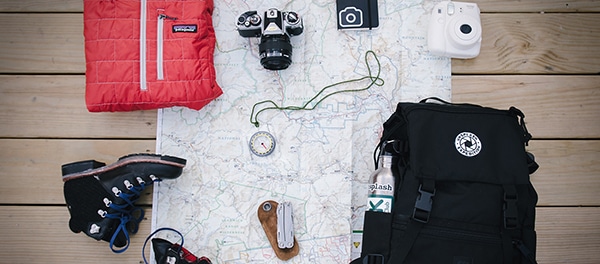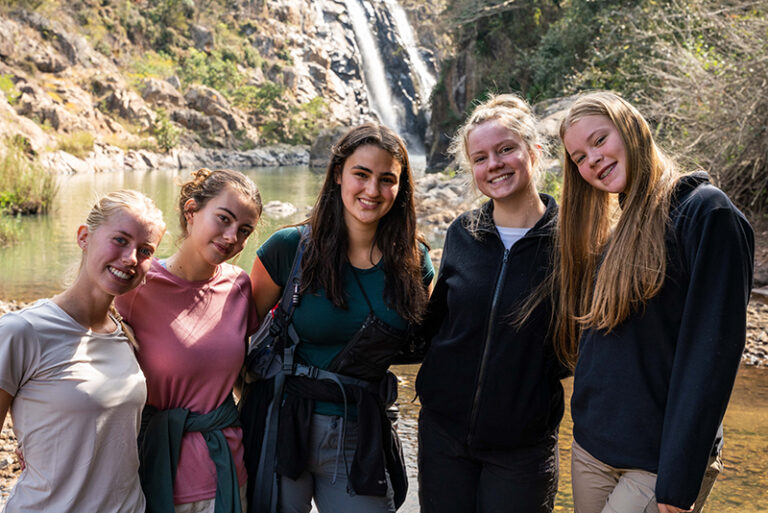Planned properly, curriculum travel trips offer incredible learning experiences. When students step outside the classroom and venture into foreign lands, they get the opportunity to learn and grow in a way that no school curriculum can teach them. A school trip abroad is not only a chance to learn new things – but it can also be the adventure of a lifetime.
There are also advantages for teachers – leading a school trip can be a rewarding experience, especially with the added challenges that come with taking it to a far-flung country. Language barriers, different currencies and unfamiliar customs can add an extra layer of complication, but they are by no means insurmountable. For an overseas trip to be a success, both students and teachers alike will need to problem-solve and step outside their comfort zone.
And preparation is a major factor that will contribute to your trip’s success. Laying the foundations for a positive experience abroad is key, and should be started well in advance. So here’s our handy guide to planning a successful overseas school trip, including when to start, what to research and consider, and the type of information to collect from students.
Why plan a school trip abroad?
For students, the benefits of overseas school trips are manifold. Travelling abroad with school might just prove to be the adventure of a lifetime, one that allows them to develop their character, hone new skills – and return home forever changed.
Without the confines of school walls, students are free to immerse themselves in local culture. They could stay with a local community, step forward as team leaders on a trek, explore epic landscapes and see first-hand the types of things they have previously only read about in textbooks. There is no better way for young people to learn about other cultures than by experiencing them in real life – and this type of trip allows them to do exactly that.
No matter the type of trip – whether it’s a curriculum-based tour of New Zealand or a full-blown expedition through the Nepalese mountains – pupils will be able to discover how to travel independently (and safely!) and meet new friends along the way.
As for teachers, there are enriching experiences to be had, too. The ability to solve problems when they arise, plus a willingness to adapt to unpredictable situations, are essential components once on the ground – so prepare for this. The end result? A rewarding experience shared with colleagues and friends, that will stay with you for years to come.
Start planning your trip early
It’s never too early to start planning. Ideally, you should start 12-18 months in advance of your trip. There’s a lot to organise, so give yourself – and your students – ample time in order to reduce undue stress. Giving a long lead-in time also gives parents longer to budget for the trip, which can make it more affordable.
If you’re going to be taking on something physically demanding, such as a trek at altitude, you may need to adjust your diet and fitness regime – so give yourself time to do this. For example, depending on your fitness levels, it might be necessary to start training six months before you depart. You might also want to eat a healthier diet as part of your pre-trip training. Another good idea is to avoid injury-prone sports, like skiing and downhill mountain biking, in the run-up to the trip.
Some travel documents and vaccinations need to be organised 6-8 weeks in advance, so make sure you know what is required for your destination. Check the Foreign Travel Advice and the Fit For Travel websites (gov.UK/foreign-travel-advice) ahead of time.

Identify your trip objectives – and stick to them
Trip leaders should identify the learning opportunities of a tour during the planning stages – and stick to them once they are overseas. Write down your objectives. What do you want your students to take away from the trip?
Perhaps you want to focus on one specific area of your curriculum, provide a broader understanding of a subject or merge cross-curricular subjects. Or maybe your objective is for your students to develop leadership skills, learn how to contribute positively to a community, manage a budget or learn how to travel with more independence.
Some trips have an obvious parallel to the curriculum, making it easy to pinpoint the learning objectives once you’re there. For instance, on an expedition to Iceland, you’ll be surrounded by fascinating geology that fits a geography syllabus; and on a history trip to Vietnam, students will encounter the country’s war-torn past.
Learning opportunities don’t have to be formal. Swap sit-down lessons for a more fun debrief. Get creative, and throw in a review when they naturally crop up. For instance, after a particularly tough trek, ask the group to pinpoint the positives, notice who stepped up and reflect on how this might impact the rest of the trip. Let them open up about their experience. It can be helpful to consider where these trip objectives might fit in before setting off.

Get to know your trip destination
Possibly the most important factor when it comes to planning an overseas school trip is getting to know your destination. Do your research well before you depart, so you can be one step ahead of your students when they ask questions.
Of course, you’ll want to know what the currency is, which language is spoken and what the food’s like in the country you’re going to visit. But dig a little deeper, so you and your students can fully immerse yourself in the culture.
For instance, in India, the left hand is considered unclean so make sure everyone knows that they should use their right hand to eat and pass objects instead. If you’re going to Asia, arm yourself with the knowledge that, in many parts of the continent, showing the soles of your feet or touching someone’s head is a rude gesture. And in Japan, you should remove your shoes before entering a temple or someone’s home and never stick your chopsticks upright in rice (as this is done only at funerals).
Encourage your students to do their pre-departure research, too. Once you arrive, steer them away from Mcdonald’s and Coca-Cola and towards local life. Get them excited about momos (Nepalese dumplings), pho (Vietnamese soup) and Cambodian rice cakes at home – so they enjoy them even more when it comes to tasting them abroad.
Get to know these local customs before you leave so you can avoid looking like a tourist once you arrive.

Consider what might impact your trip
One of the benefits of working with a tour operator is the 24-hour support you get for a range of situations, from delayed flights to Covid-19 risk management. Safety should be at the forefront of any trip, and a good trip provider should help your tour run as smoothly as possible.
However, you should still think about what might crop up during a trip – and what to do if necessary. Illness can really put a downer on a trip, so be stringent with hygiene. In the planning stages, make sure students know how important it will be to wash their hands with soap and water and to carry a sanitising hand gel.
Consider health risks and medical conditions before the trip departs. Ask students for relevant information, including any physical and mental health challenges, and pass this on to your tour operator. It’s important to be open about these things well in advance to make sure the right support is in place.
Pack light
A common problem on overseas school trips is overpacking – people usually overestimate what they need and tend to bring far too much. Remember to only pack what you need. Remind students that they can wash their clothes and don’t need to bring ten pairs of socks! Kits lists are written with this in mind.
You can still allow yourself a little luxury – just make sure it’s small and lightweight. Some ideas include your favourite book or an inflatable pillow for long journeys and international flights. Or maybe your luxury item would be a small bottle of Tabasco, so you can add your favourite hot sauce to any dish. These small touches can add a homely touch to even the most far-flung trip.

Written by Ellie Ross




